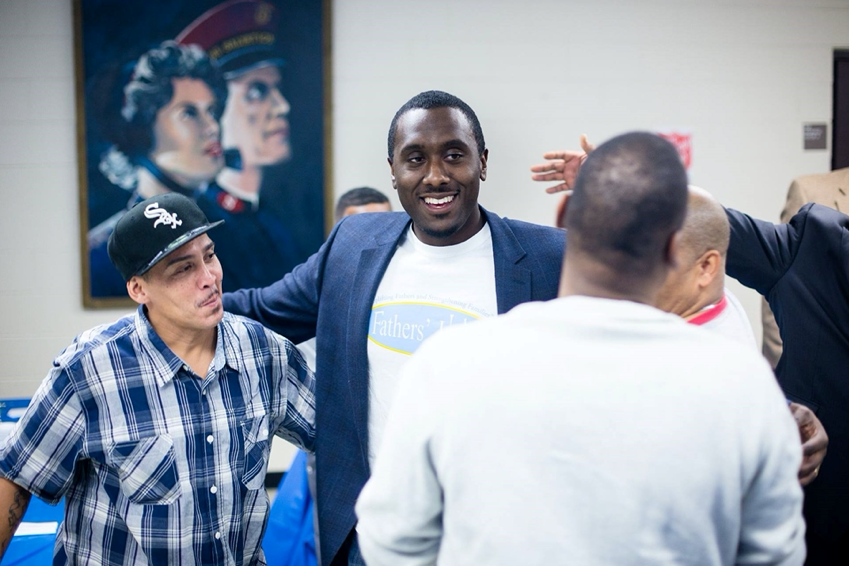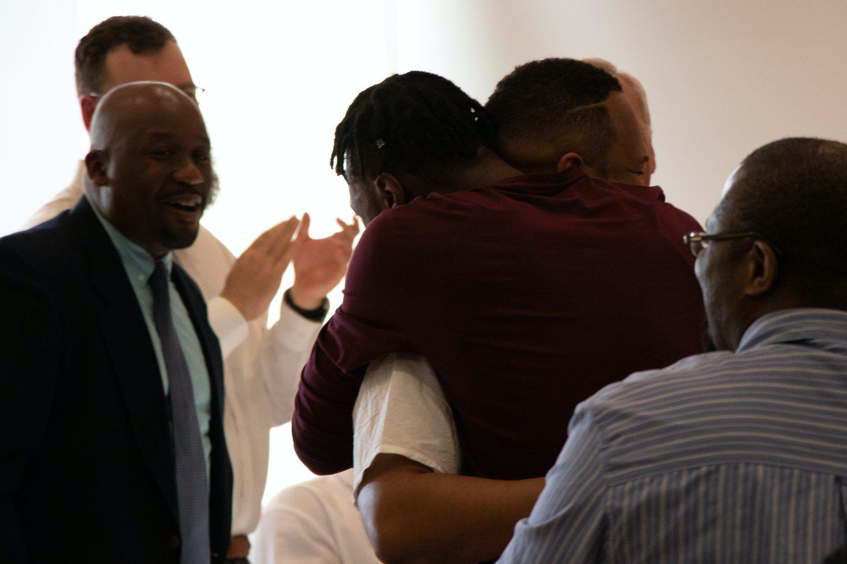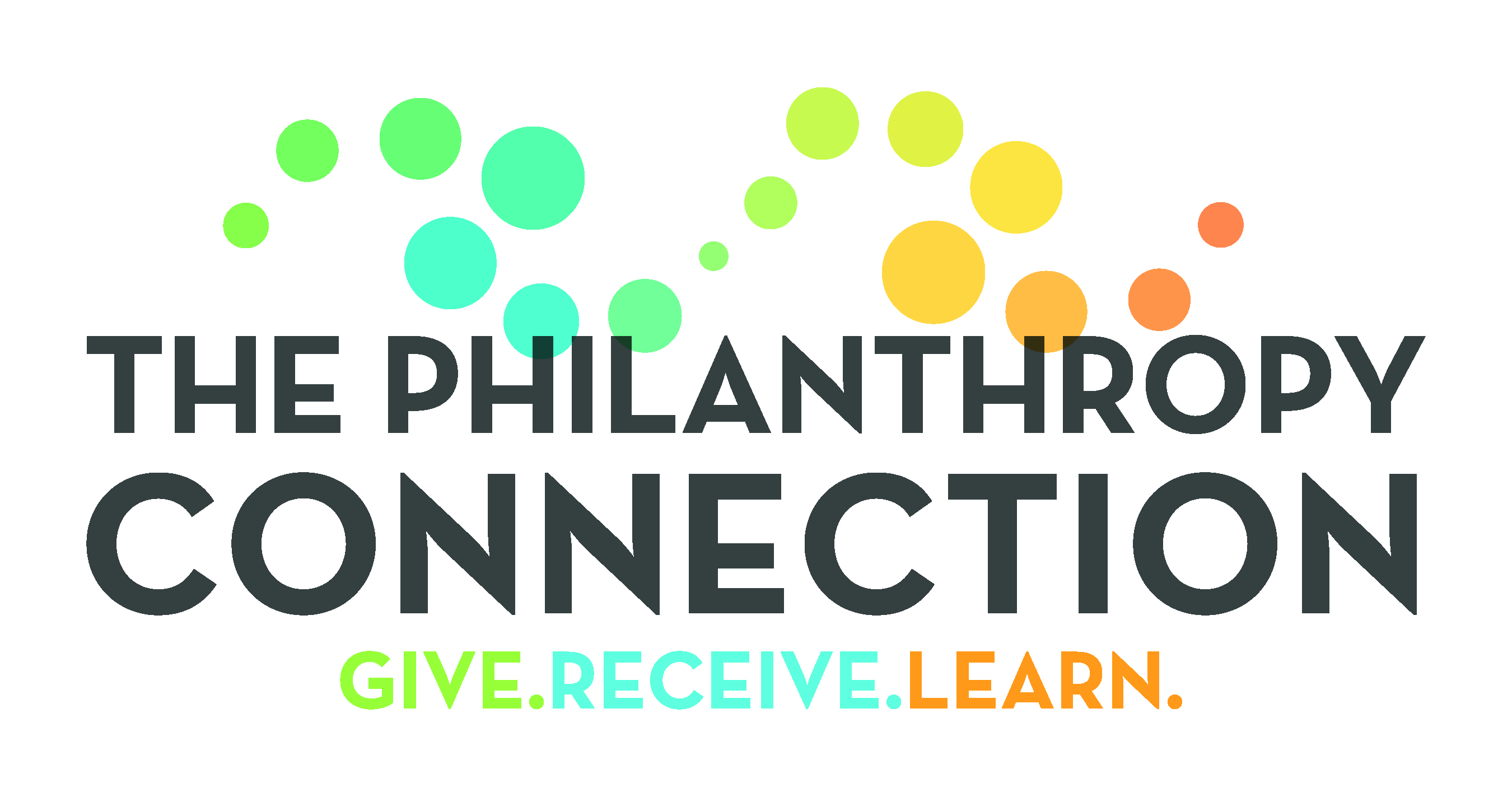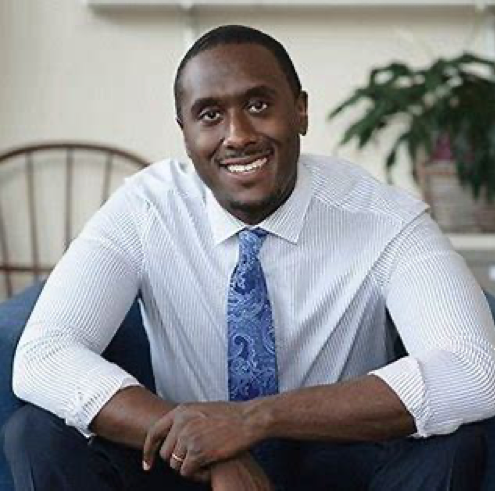The Interview with Co-Founder and CEO Charles Daniels
Tell us a little about yourself and how you came to found Fathers’ Uplift, Inc.
One of the most difficult periods in this journey came during 2013 when we were just getting started, with me about to jump in full-time with Fathers’ Uplift. One day, things took a turn…we were running out of resources. After attempting to reconcile this painful reality by myself, I finally mustered up enough courage to go to my wife and co-founder, Samantha, and tell her.
I remember that conversation like it was yesterday. She was sitting in the kitchen of our one-bedroom apartment at the time. I put my things down, walked over to her and began sharing my concerns. “I know things are tough right now. I can get a job,” I shared, with tears in my eyes. She looked at me, held me, and said, “You are not going anywhere. You are going to continue to work at Fathers’ Uplift. This is something that we were called to do and it is going to work out.”
Deep down, Samantha knew that girls and boys needed to have caring and loving fathers in their lives. She refused to allow me to give up on the vision of one day reconnecting thousands of fathers to their children. Fathers’ Uplift was founded out of my own pain of growing up fatherless. As I thought about my father and his absence as an adult, I considered the things he was going through that prevented him from remaining active in my life. One day I said to myself, “What if someone had been there to help him? It might have made a tremendous difference.” That internal conversation led to the creation of Fathers’ Uplift, where we now help fathers overcome any and all obstacles, internal or external, which might keep them from a flourishing and engaged relationship with their children.
 What are the goals of the organization?
What are the goals of the organization?
Our overarching goal as an organization is to help fathers overcome barriers (such as racial, emotional, traumatic, or addiction-based barriers) that prevent them from remaining engaged in their children’s lives. This year we hope to assist between 2500 and 3000 fathers and family members in this way.
As part of this goal, we pursue sub-goals tied to metrics relevant to fathers’ own mental health, their engagement with their children, and factors of physical and social health.
What is most gratifying about your work? Is there an example that stands out for you?
Some of our greatest joys are found in the simple moments of service. Experiences such as seeing a father be reconnected to his children for the first time in months or years, hearing a child express how we’ve helped them to feel worthy and valuable, or being told by fathers that we’ve helped them to end generations of fatherlessness; these are powerful experiences.
 Last week one child brought members of our team and visiting grantors to tears as, with breaks to compose his emotions, he shared how our coaches had helped him overcome stigmas around mental health when he was in a dark place and had helped him to feel worthy and recognize his value despite growing up without a father present.
Last week one child brought members of our team and visiting grantors to tears as, with breaks to compose his emotions, he shared how our coaches had helped him overcome stigmas around mental health when he was in a dark place and had helped him to feel worthy and recognize his value despite growing up without a father present.
One father recently wrote a letter to us from a prison cell in Louisiana, asking to be connected to our services. He wrote that he is in the final years of a sentence, while at the same time his father has been incarcerated for decades, and he wants to be sure to break this cycle for his own son so that he doesn’t make the same mistakes that he and his father made. We are frequently reminded that we are not just doing work that impacts people now, but that our work will impact generations who are not even yet alive. That is very powerful.
How is the TPC grant being used?
We are thankful for the financial support that TPC has provided and are utilizing this support to add to the sustainability of our operations. The funding provided by TPC has allowed us to hire an additional billing coordinator, which helps us to decrease our proportion of bad debt in billing and increase successful insurance reimbursement, increasing the sustainability of our work.
What do you hope to gain from your relationship with TPC? Are there other ways TPC members could help you?
We are eager to get to know the TPC community and share our story. We hope to help TPC members to emotionally connect with our work and those we serve and to see them become advocates and partners in our journey to end fatherlessness. Ways TPC members can support Fathers’ Uplift include listening to our podcasts, packing or purchasing a Bag for a Dad (more info at fathersuplift.org/bagsfordads), hosting a Bags for Dads Drive, participating in one of our online celebrations of fatherhood, such as our “Thank a Father” Father’s Day campaign, or just sharing the word. And, of course, monetary donations keep the gears grinding and wheels turning behind our services and they will always be appreciated.

